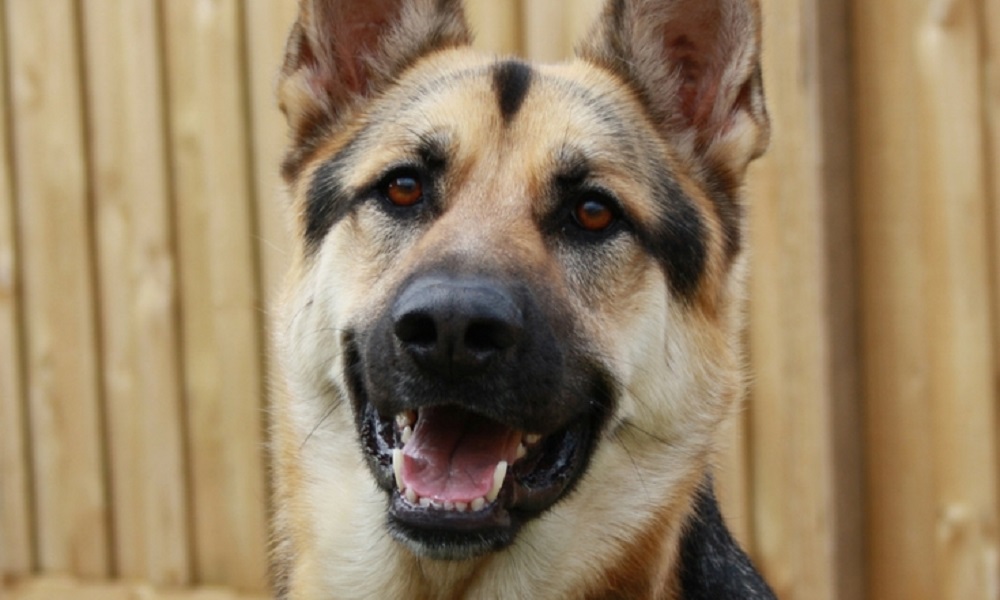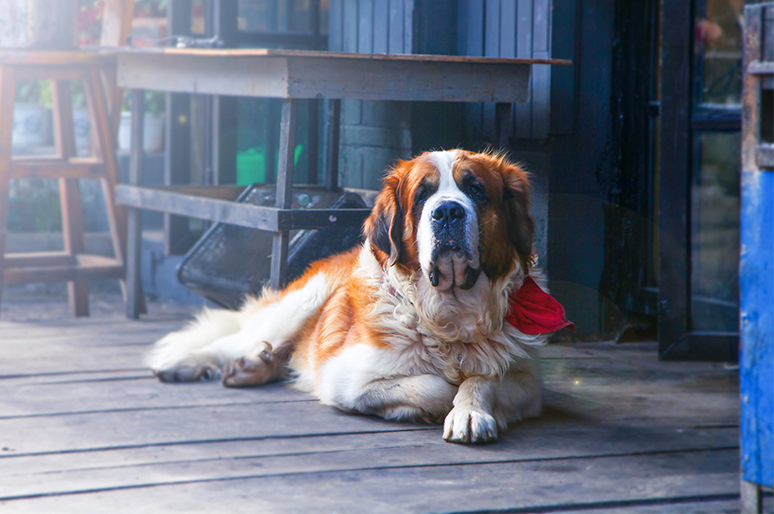There are mixed opinions on whether or not dogs would protect their owners if they were attacked. Some people believe that their dog would do anything to protect them, while others think that their dog would run away and hide. The truth is, it depends on the individual dog and its personality.
Some dogs are more protective than others and some have a stronger bond with their owner. If you’re wondering whether or not your dog would protect you if you were attacked, here are a few things to consider.
Your dog is your best friend and you know they would do anything for you. But what if you were attacked? Would your dog protect you?

There are no guarantees in life, but if your dog loves you, there’s a good chance it would try to protect you if you were attacked. They may not be able to take down a human attacker, but their bark or bite could give you enough time to get away or call for help. Of course, every dog is different and some are timider than others.
If you’re worried about your dog’s ability to protect you, consider enrolling them in obedience or protection training. This will give them the confidence and skills they need to defend themselves if the situation ever arises.
How Would I Know If My Dog Would Protect Me?
When it comes to protection, all dogs have the potential to be protective of their guardians. However, some breeds are more likely to show protective behaviors than others. If you’re wondering if your dog would protect you in a dangerous situation, here are a few things to look for:
1. A strong bond: One of the most important predictors of whether or not a dog will protect its guardian is the strength of the bond between them. Dogs who are deeply bonded with their humans are more likely to show protective behaviors than those who aren’t as close. If your dog is always happy to see you and follows you around the house, there’s a good chance they would step up in a time of need.
2. A history of guarding: Some dogs have a natural instinct to guard and protect. This often manifests itself in guarding behavior such as growling or barking when strangers approach. If your dog has exhibited this type of behavior in the past, it’s likely it would do so again if faced with a threatening situation.
3. Confidence: Another important factor is confidence level. A confident dog is more likely to take on a perceived threat than one who is timid or shy. If your dog is usually confident and fearless, they’re more likely than not going to try and defend you if necessary.
Do Dogs Instinctively Protect Their Owners?
There are many stories of dogs coming to the aid of their human companions in times of need, but is this instinctive behavior or simply a result of training and domestication?
Let’s take a closer look at whether dogs instinctively protect their owners. It’s natural for any animal to want to protect itself and its young from harm, but there are different degrees of protection.
For example, a mother bear will fiercely defend her cubs if they’re threatened, but she won’t necessarily do the same for another adult bear.
In other words, animals tend to be more protective of those that are part of their immediate family or pack. Dogs fall into this category as well; they’re more likely to protect other dogs in their pack (i.e., their family) than strangers.
However, this doesn’t mean that dogs don’t have the potential to protect humans too. In fact, there are several reasons why a dog might come to the aid of its human companion. First, if a dog perceives its owner as part of its pack (which is often the case), it may feel inclined to protect him or her from harm.

Credit: reolink.com
Will My Dog Protect Me Test?
Assuming you are referring to the Cadaver Dog Protection Test:
The Cadaver Dog Protection Test is a test created by law enforcement and military organizations to assess a dog’s ability to protect their handler. The test involves having the dog guard an empty room while the handler leaves the room.
Once the handler is out of sight, a “bad guy” enters the room and attempts to attack the handler. The dog must then defend their handler and stop the “bad guy” from harming them. This test is designed to see if a dog has the potential to be a good protection dog.
It is important for law enforcement and military organizations to have dogs that can protect their handlers, as these handlers often put themselves in danger when working.
Not all dogs will pass this test, as it requires a certain level of aggression and protective instinct. However, many dogs can be trained to pass this test with proper training and socialization.
If you are interested in seeing if your dog has what it takes to be a protection dog, you can contact a local law enforcement or military organization to see if they offer this testing.
Signs Your Dog is Protecting You
There are several signs that your dog is protecting you. One of the most common signs is if your dog starts growling or barking at someone who approaches you. This is usually a sign that your dog does not trust the person and is trying to protect you from them.
Another sign that your dog is protecting you is if they start placing themselves between you and the person they perceive as a threat. This is often seen when there are strangers around or when someone tries to approach you in an aggressive manner. If your dog starts doing this, it means they are trying to protect you from harm.
Another sign that your dog is protecting you is if they become more alert and attentive when someone approaches you. They may start sniffing them carefully or even start following them with their eyes. This behavior shows that your dog is trying to assess whether the person poses a threat to you or not.
Finally, another sign that your dog is protecting you is if they start sleeping in front of your bedroom door at night. This position allows them to block anyone from coming into the room and harming you while you sleep.
Would My Dog Protect Me from an Intruder?
Your dog is your best friend, and you would do anything to protect them. But what if the situation was reversed? Would your dog be able to protect you from an intruder?
The answer depends on a few factors, including the size of your dog, their temperament, and their training. A small dog or a timid dog is not likely to be much help in a dangerous situation. But a large, strong, and confident dog that has been properly trained can be a powerful ally.
If you want your dog to be able to protect you from an intruder, it is important to start with basic obedience training. This will teach them how to respond to commands and give them the foundation they need for more advanced training.
Once they have mastered the basics, you can begin teaching them specific protection behaviors. There are many different ways to train your dog for protection work. You can find professional trainers who specialize in this type of work, or you can do it yourself at home.
The most important thing is that you are consistent with your training and that you use positive reinforcement methods. Yelling at or punishing your dog will only make them more fearful and less likely to defend you in a real-life situation.
Conclusion
Many dog owners wonder if their furry friend would be able to protect them if they were ever attacked. The answer to this question largely depends on the individual dog and its training. Some dogs are bred specifically for protection, such as guard dogs, while others have a natural instinct to defend their pack (which includes you!).
However, even the most loyal and protective dog may not be able to take down an attacker without proper training. If you’re concerned about your safety and want to make sure your dog is prepared in case of an emergency, consider enrolling in protection training classes with a certified professional.